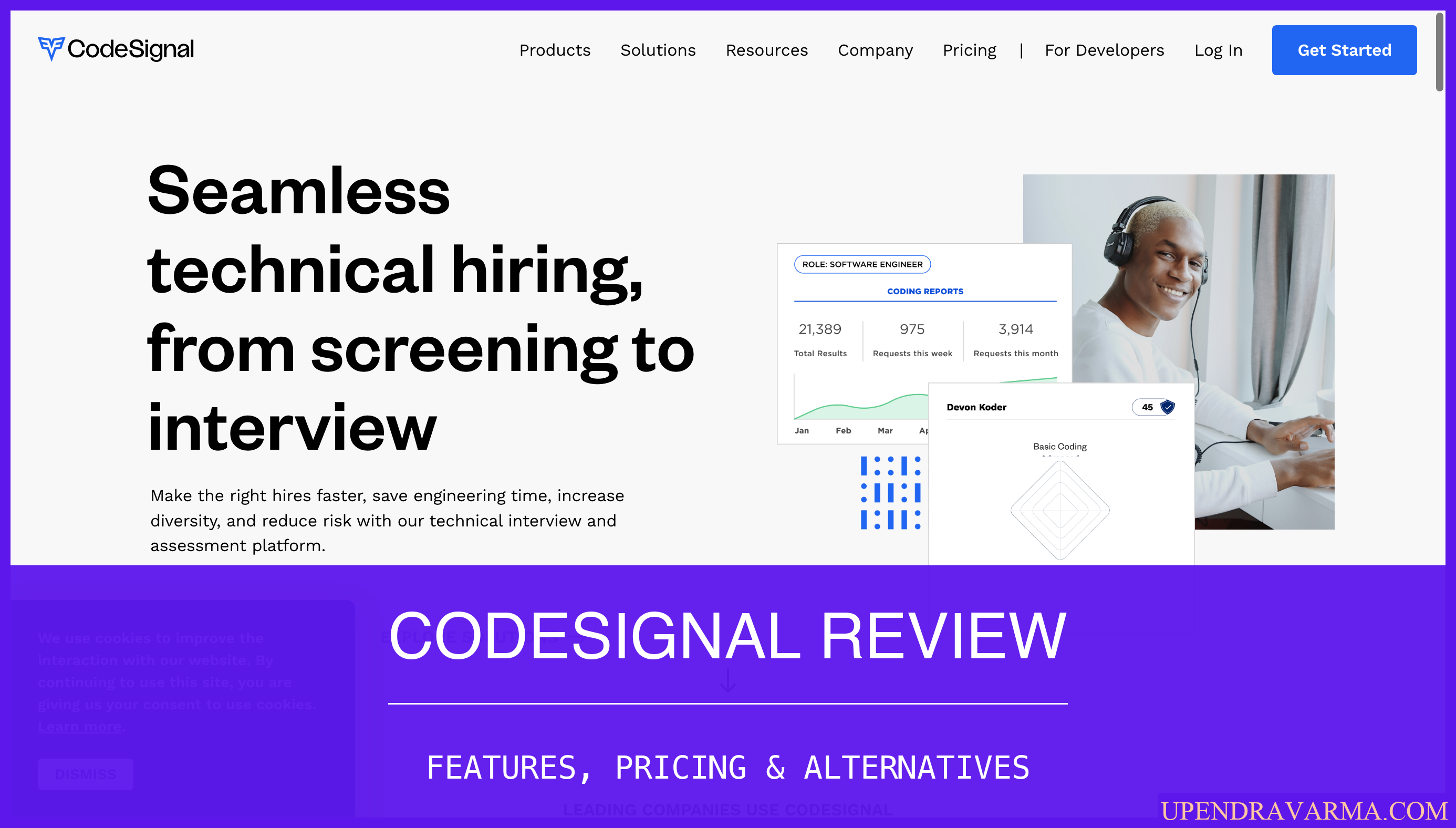Hey there! Welcome to my blog, where I review various software products to help you make informed buying decisions. Today, we're going to dive deep into , a B2B SaaS product that specializes in third-party risk and attack surface management. So, let's get started!
UpGuard Review: What is UpGuard?
UpGuard is a powerful software platform that helps companies monitor, assess, and reduce their vendor risk. It provides all-in-one third-party risk and attack surface management solutions, making it easier for organizations to identify and mitigate potential security vulnerabilities.
UpGuard Review: How can it be used?
UpGuard can be used in a variety of ways, depending on the needs of different user profiles and industries. Here are a few examples:
- Vendor Risk Management: UpGuard allows companies to continuously monitor and assess the security posture of their vendors. It provides security ratings, vulnerability detection, and risk assessments, helping organizations make informed decisions about their vendor relationships.
- Attack Surface Management: UpGuard helps companies manage their attack surface by monitoring unlimited domains, detecting vulnerabilities, and providing executive reports. It also offers remediation workflows and risk waivers, making it easier for organizations to improve their security posture.
- Managed Security Services: UpGuard offers managed security services, including evidence chasing, risk assessments, and remediations. It also provides data protection and leak detection, helping organizations proactively identify and address potential data breaches.
UpGuard Review: Who is it for?
UpGuard is designed for data-conscious companies that want to protect their sensitive information and reduce their risk exposure. Here are a few user profiles that can benefit from using UpGuard:
- CISOs and Security Teams: UpGuard provides security expertise and insights that CISOs and security teams can rely on. It helps them identify vulnerabilities, assess vendor risks, and improve their overall security posture.
- Vendor Managers: UpGuard simplifies the process of managing vendors by providing risk assessments, security ratings, and vendor comparisons. It also offers remediation workflows and compliance reporting, making it easier for vendor managers to reduce risk.
- Compliance Officers: UpGuard helps compliance officers ensure that their organizations meet industry standards and regulations. It offers features like AI autofill, questionnaire libraries, and co-branding, making compliance management more efficient.
UpGuard Features
Now, let's take a closer look at some of the key features that UpGuard offers:
- Data Leak Detection: UpGuard helps organizations detect data leaks by continuously monitoring their attack surface and identifying potential vulnerabilities.
- Vendor Risk Assessments: UpGuard allows companies to assess the security posture of their vendors and make informed decisions about their relationships.
- Security Questionnaires: UpGuard provides intelligent questionnaires that help organizations gather evidence and assess the security practices of their vendors.
- Security Ratings: UpGuard offers security ratings that give organizations a clear understanding of their overall security posture and the security posture of their vendors.
- Reporting & Dashboards: UpGuard provides executive reports, risk profiles, and customizable dashboards that help organizations visualize and track their security performance.
- Integrations: UpGuard seamlessly integrates with other tools and platforms, allowing organizations to streamline their security operations and workflows.
- AI Autofill: UpGuard's AI autofill feature simplifies the process of filling out security questionnaires by automatically populating relevant information.
UpGuard Plans

If you're interested in UpGuard, I've written a more in-depth review about its pricing plans on my blog at upguard pricing. Check it out for all the details!
UpGuard Alternatives
If you're considering UpGuard, you might also want to explore some alternative options. Here are a few alternatives worth checking out:
- BitSight: BitSight is a cybersecurity ratings company that provides security ratings and risk assessment solutions. You can learn more about BitSight on their official website: bitsight.com.
- SecurityScorecard: SecurityScorecard offers a platform that helps organizations assess and monitor the security posture of their partners and vendors. To find out more about SecurityScorecard, visit their website: securityscorecard.com.
- CyberGRX: CyberGRX is a company that provides a risk management platform for third-party cyber risk management. For additional information about CyberGRX, you can visit their official website: cybergrx.com.
- RiskRecon: RiskRecon is a platform that enables organizations to manage and monitor their third-party cyber risk. To explore more about RiskRecon, you can visit their website: riskrecon.com.
UpGuard Review: Pros & Cons
Now, let's talk about the pros and cons of using UpGuard:
Pros:
- Comprehensive third-party risk and attack surface management solutions
- User-friendly interface and customizable dashboards
- Powerful integrations with other tools and platforms
- AI autofill feature saves time and improves efficiency
- Continuous monitoring and data leak detection help organizations stay ahead of potential breaches
Cons:
- Pricing may be a bit on the higher side for small businesses
- Some advanced features may require additional setup and configuration
Conclusion
In conclusion, UpGuard is a leading software platform for third-party risk and attack surface management. It offers a wide range of features that help organizations continuously monitor, assess, and reduce their vendor risk. Whether you're a CISO, a vendor manager, or a compliance officer, UpGuard can provide the security expertise and tools you need to protect your sensitive data.
I hope this in-depth review of UpGuard has been helpful to you. If you're interested in reading more software reviews, be sure to check out my blog at saas blog. Happy exploring!










